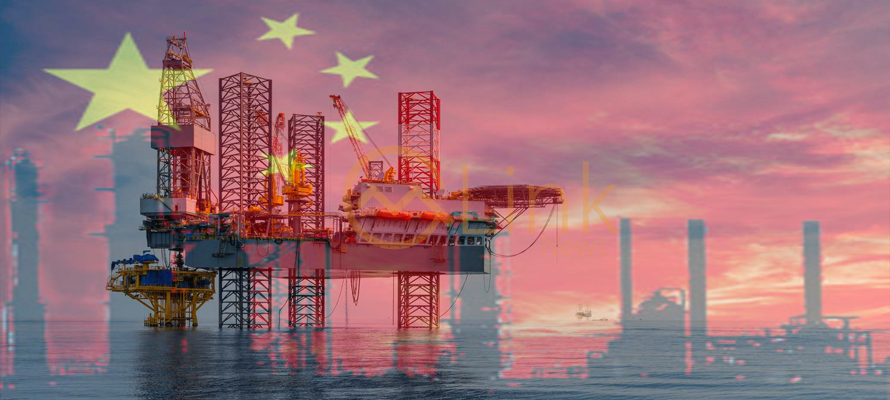China's surging oil demand sparks hiring spree of supertankers

MG News | March 17, 2023 at 02:47 PM GMT+05:00
March 17, 2023 (MLN): China's economy is rebounding after Covid-19 lockdowns, leading to a surge in demand for crude oil and a hiring spree for supertankers to carry it.
The cost of chartering the most coveted type of tanker, featuring modern exhaust systems, has doubled to nearly $100,000 a day in just a month, say ship brokers. China's oil-refining industry is experiencing a spurt in crude demand, with U.S. oil in particularly high demand.
Chinese crude imports are on track to match or surpass the record level from June 2020, according to commodity-tracking firm Kpler. This is good news for tanker owners that rent ships out, including New York-listed Frontline PLC, Euronav NV, and Teekay Tankers Ltd. However, a sustained increase in Chinese energy demand could boost gasoline and natural-gas prices globally, complicating the task of central banks trying to tamp down inflation.
Chinese imports haven't yet fed into higher prices, and benchmark Brent-crude prices have dropped 10% this month to about $75 a barrel, their lowest level since late 2021. However, some energy executives and traders say that quenching China's thirst for oil is likely to propel prices later this year. Analysts at HSBC said 41 tanker bookings occurred during the first 10 days of March, compared with 62 for all of February. The analysts added that they expect Very Large Crude Carrier (VLCC) rates to stay at high levels.
Unipec, the trading arm of state-owned refiner China Petroleum & Chemical Corp., has led the pack with a flurry of bookings since the start of February, according to brokers and Refinitiv data. A senior tanker broker in Singapore said that more than 20 Unipec-destined cargoes were bringing in about 8.5 million barrels and that the activity continues in March.
High tanker rates contrast with a retreat in other shipping markets, a decline that has flashed a warning about the world economy. Container-freight rates have tumbled, and shippers have cut as much as one-third of voyages across the Pacific after a slowdown in goods demand.
However, sanctions on Russian oil are squeezing the supply of ships, favoring tanker owners. Longer trips tie up ships that would otherwise be available. Plus, a growing portion of the fleet is dedicated to moving sanctioned Russian, Venezuelan, and Iranian oil, rendering it unusable for many companies.
Shipping is prone to boom-bust cycles, but this time there is no rush of new tankers to ease supply. Uncertainty about the future of marine fuels and regulations has deterred owners from placing orders. Clarkson PLC, a ship brokerage, estimates that tanker capacity will grow just 2.9% from new ships hitting the water. In contrast, the liquefied-natural-gas fleet is set to increase by 50%, based on shipbuilders' order books.
China is expected to drive a two-million-barrel rise in the world's daily oil demand this year, the International Energy Agency said Wednesday, pushing it to a record 102 million.
An open question is how much oil China will consume at home, and how much it will refine and export to Europe to replace sanctioned Russian diesel. "China coming back from Covid: It wasn't going to restart overnight. It was always going to take a little bit of time," said Andrew Wilson, head of research at BRS Shipbrokers.
Copyright Mettis Link News
Related News
| Name | Price/Vol | %Chg/NChg |
|---|---|---|
| KSE100 | 138,597.36 256.32M | -0.05% -68.14 |
| ALLSHR | 85,286.16 608.38M | -0.48% -413.35 |
| KSE30 | 42,340.81 77.13M | -0.03% -12.33 |
| KMI30 | 193,554.51 76.19M | -0.83% -1627.52 |
| KMIALLSHR | 55,946.05 305.11M | -0.79% -443.10 |
| BKTi | 38,197.97 16.53M | -0.59% -225.01 |
| OGTi | 27,457.35 6.73M | -0.94% -260.91 |
| Symbol | Bid/Ask | High/Low |
|---|
| Name | Last | High/Low | Chg/%Chg |
|---|---|---|---|
| BITCOIN FUTURES | 117,670.00 | 121,165.00 117,035.00 | -1620.00 -1.36% |
| BRENT CRUDE | 69.23 | 70.77 69.14 | -0.29 -0.42% |
| RICHARDS BAY COAL MONTHLY | 96.50 | 0.00 0.00 | 2.20 2.33% |
| ROTTERDAM COAL MONTHLY | 104.50 | 104.50 104.50 | -0.30 -0.29% |
| USD RBD PALM OLEIN | 998.50 | 998.50 998.50 | 0.00 0.00% |
| CRUDE OIL - WTI | 66.03 | 67.54 65.93 | -0.20 -0.30% |
| SUGAR #11 WORLD | 16.79 | 17.02 16.71 | 0.05 0.30% |
Chart of the Day
Latest News
Top 5 things to watch in this week
Pakistan Stock Movers
| Name | Last | Chg/%Chg |
|---|
| Name | Last | Chg/%Chg |
|---|




 Weekly Forex Reserves
Weekly Forex Reserves